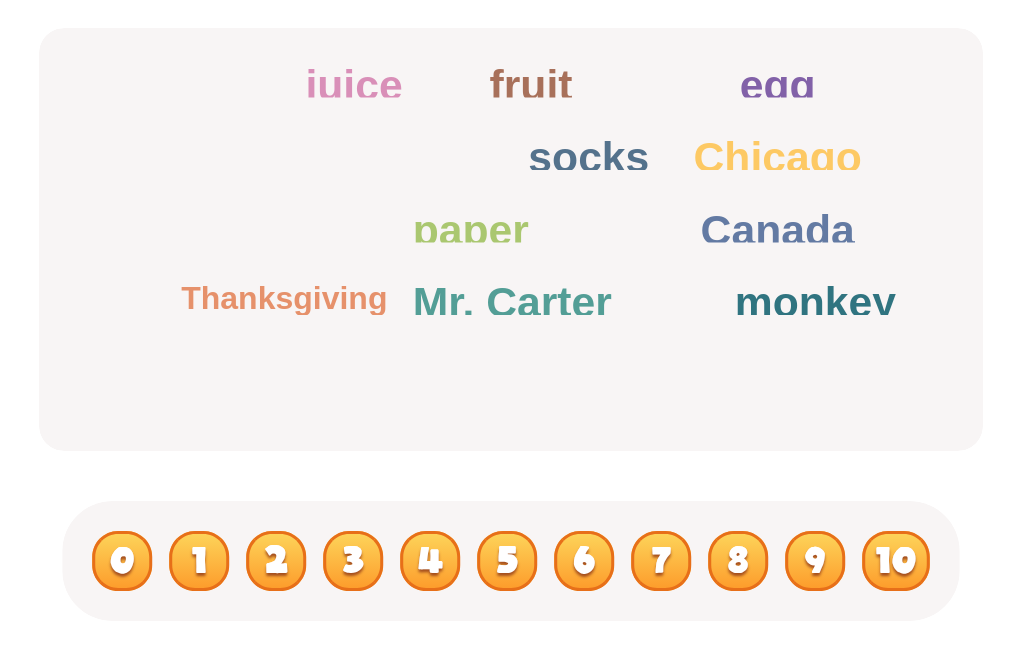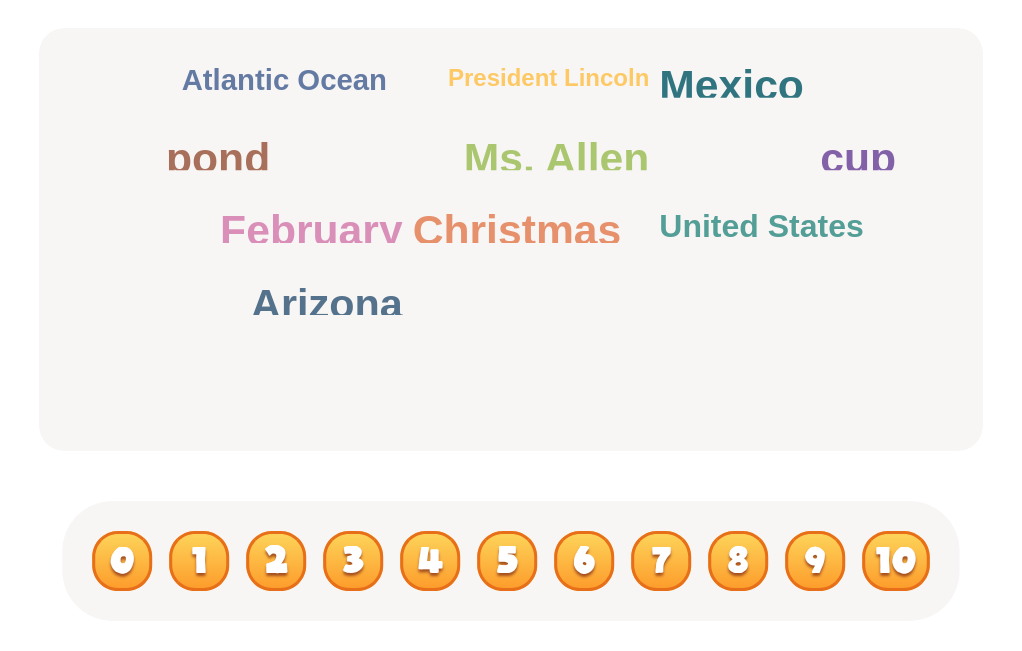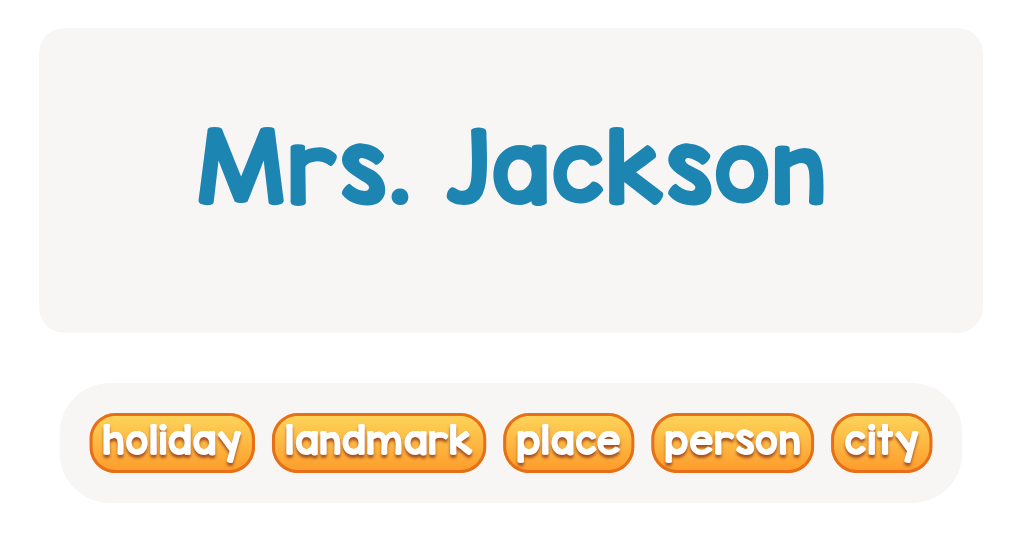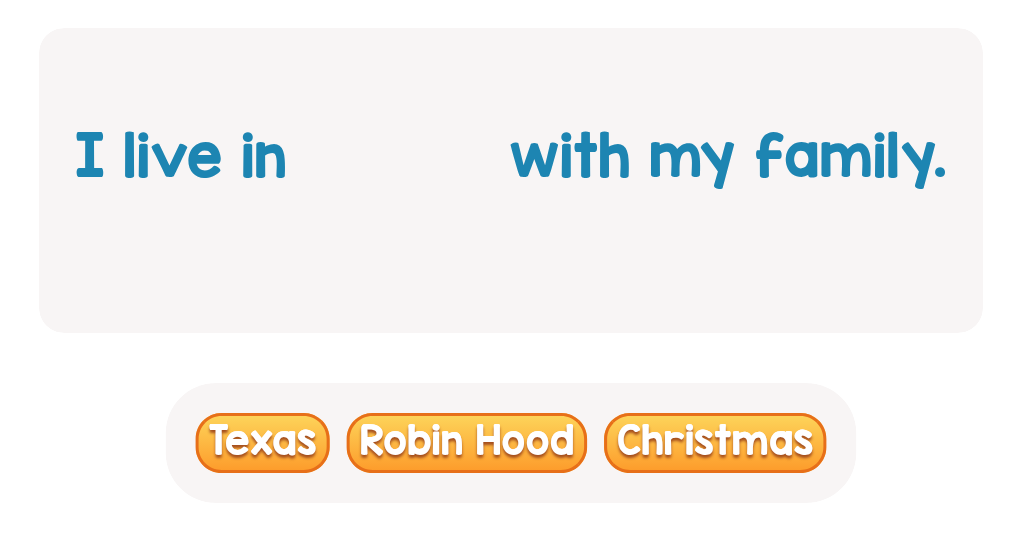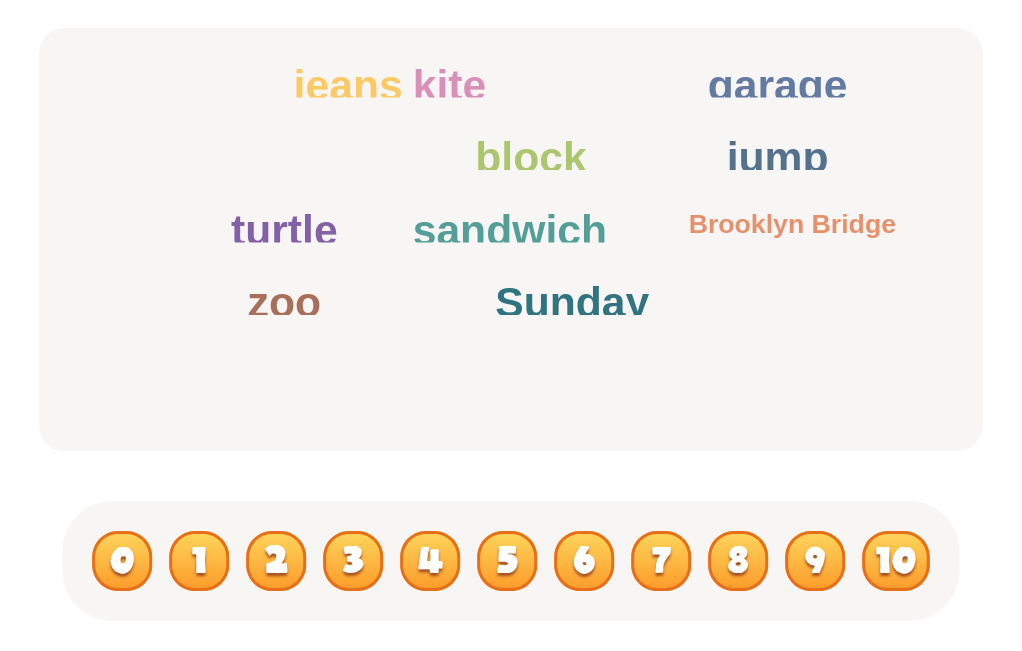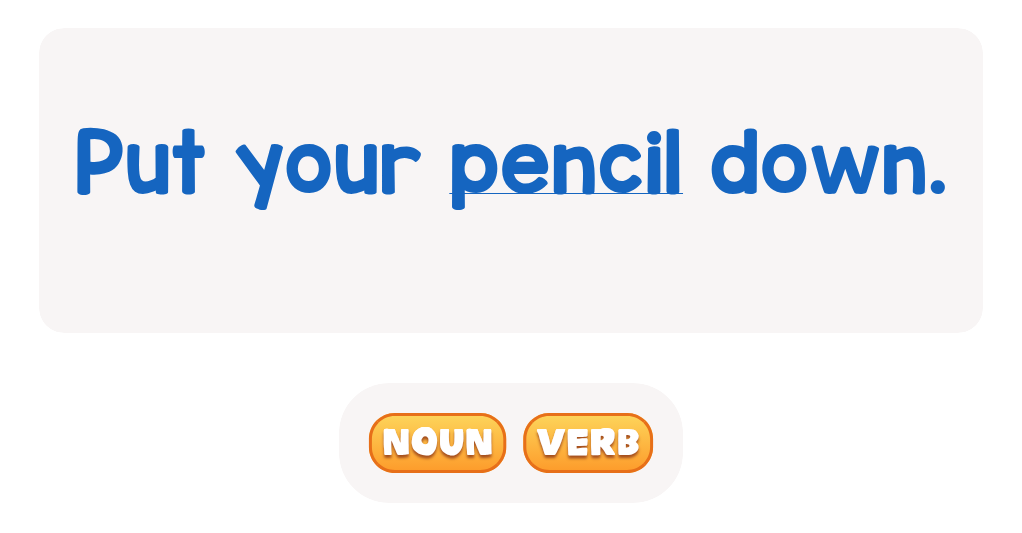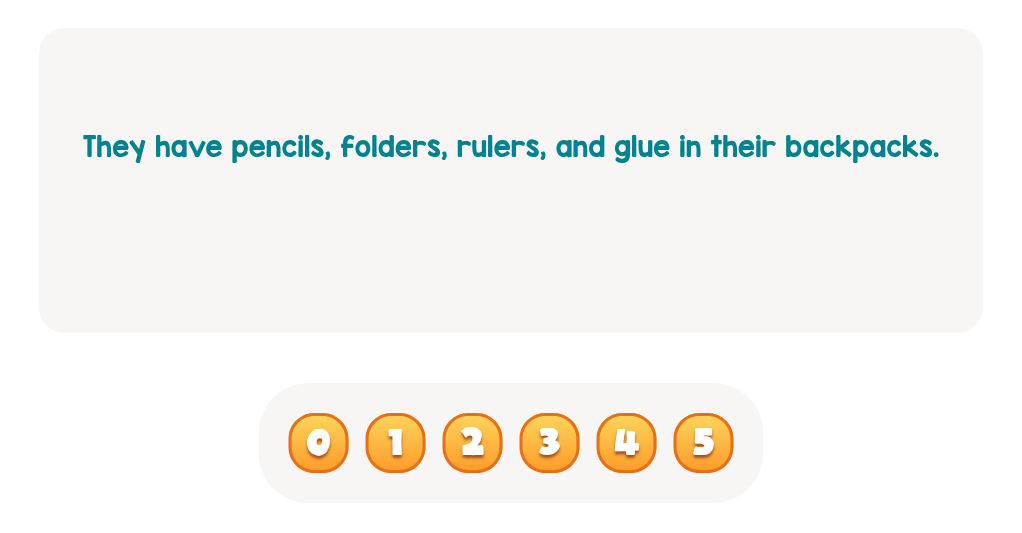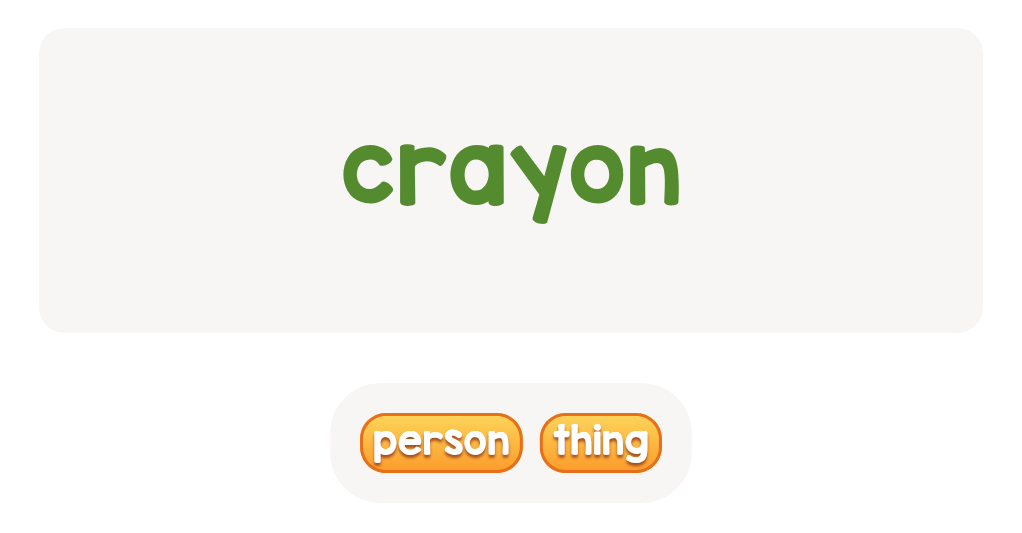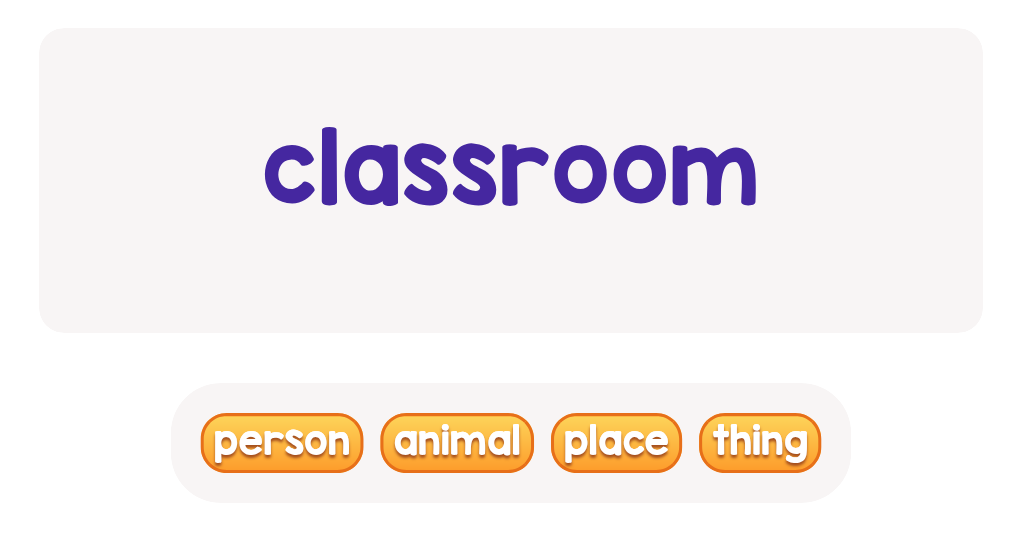Grammar skills improvement Normal Grammar Worksheets for Ages 3-9
4 filtered results
-
From - To
Enhance your child’s grammar skills with our meticulously designed worksheets for ages 3-9. Our sections focus on foundational grammar rules, including parts of speech, sentences, and punctuation. These engaging activities will help young learners master the essentials while fostering a love for language. Suitable for preschoolers to early elementary students, these worksheets offer a progressive approach to improve grammar proficiency. Developed by educators, our materials ensure age-appropriate progression, making learning effortless and enjoyable. Connect today and give your child the head start they deserve in mastering grammar with our expertly crafted worksheets from Kids Academy.
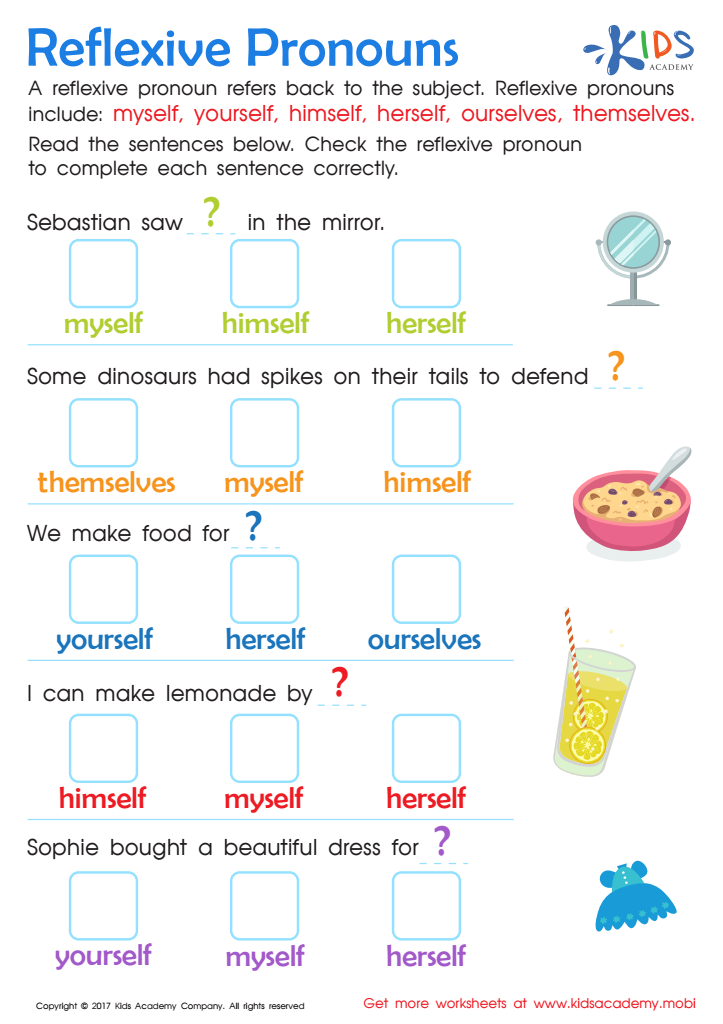

Reflexive Pronouns Worksheet
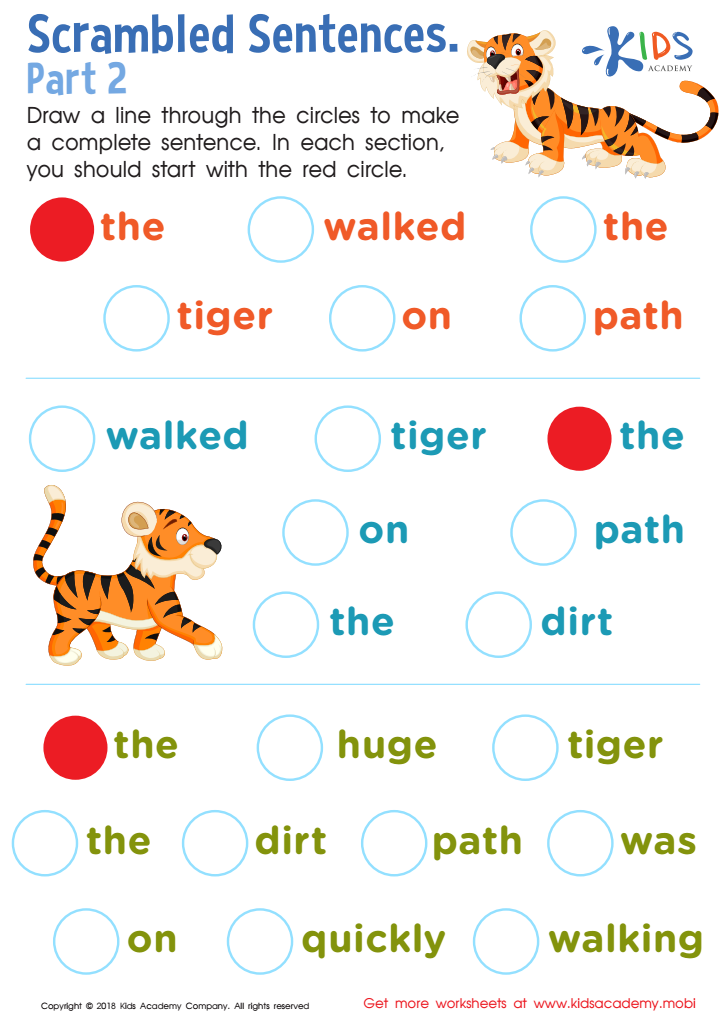

Scrambled Sentences Part 2 Worksheet


Adjectives Worksheet
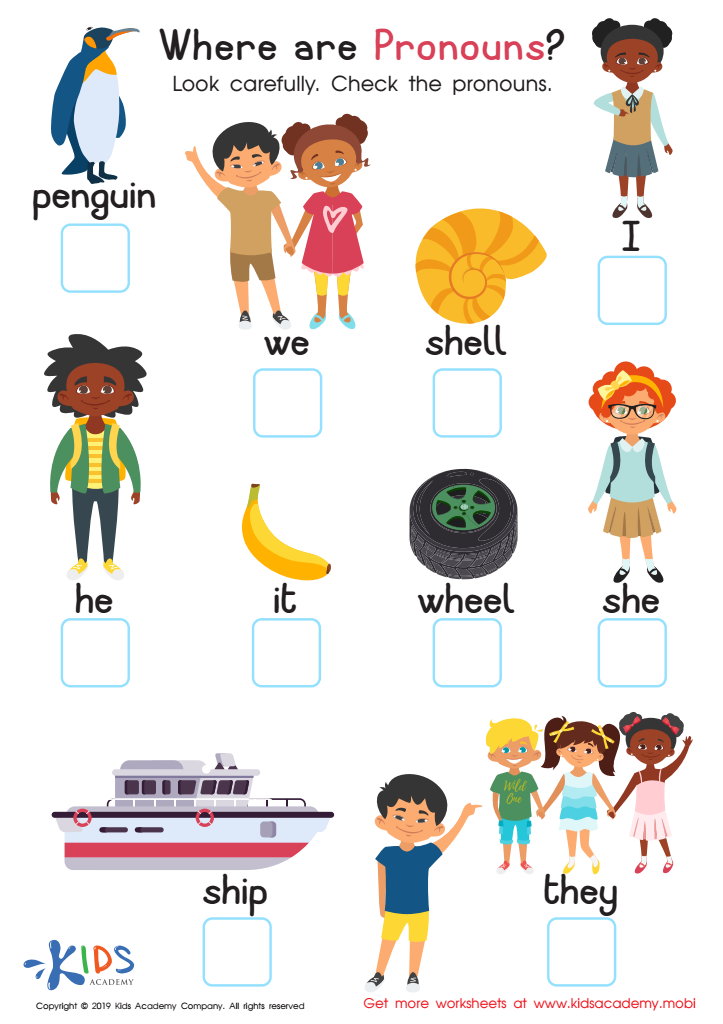

Where Are Pronouns? Worksheet
Early grammar skills lay the foundation for children's overall language development and academic success. By ages 3-9, children are experiencing rapid cognitive and linguistic growth. During these formative years, they're learning to communicate their thoughts clearly and effectively. Good grammar skills enable children to better understand and produce sentences, enhancing both their reading comprehension and expressive abilities.
Parents and teachers should prioritize grammar improvement because it directly influences a child's progress in both spoken and written language. Poor grammar skills can lead to misunderstandings and hinder a child's ability to express ideas clearly. For example, in written tasks, punctuation and sentence structure are crucial for conveying precise meaning. Well-developed grammar skills also support larger skill sets needed for other academic subjects where instructions and problem-solving often rely on language competency.
Moreover, strong grammar skills boost children’s confidence and social interaction. When children speak or write accurately, they are more easily understood and thus more likely to engage in and enjoy conversations and group activities. Encouraging proper grammar practice early on equips children with essential tools for future learning and communication, fostering both their academic growth and social-emotional development with long-lasting benefits.
 Assign to My Students
Assign to My Students
